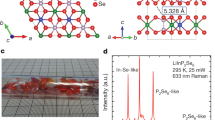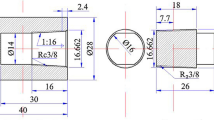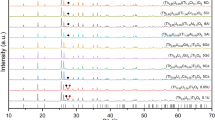Abstract
SMALL traces of impurities in the range 0.001–1 p.p.m. of group V elements present in semiconductors such as germanium and silicon have a large effect on the electrical properties. Chemical methods of analysis in this range are very dependent on the purity of the chemical reagents used, and also require large sample weights. On the other hand, the method of radioactivation analysis labels the impurity atoms originally present (provided they produce radioactive isotopes), and these atoms may then be separated with added carrier and ordinary laboratory grade chemical reagents.
This is a preview of subscription content, access via your institution
Access options
Subscribe to this journal
Receive 51 print issues and online access
$199.00 per year
only $3.90 per issue
Buy this article
- Purchase on Springer Link
- Instant access to full article PDF
Prices may be subject to local taxes which are calculated during checkout
Similar content being viewed by others
References
Smales, A. A., and Pate, B. D., Anal. Chem., 24, 717 (1952).
Author information
Authors and Affiliations
Rights and permissions
About this article
Cite this article
JAMES, J., RICHARDS, D. Radioactivation Analysis of Arsenic in Silicon. Nature 175, 769–770 (1955). https://doi.org/10.1038/175769a0
Issue Date:
DOI: https://doi.org/10.1038/175769a0
Comments
By submitting a comment you agree to abide by our Terms and Community Guidelines. If you find something abusive or that does not comply with our terms or guidelines please flag it as inappropriate.



